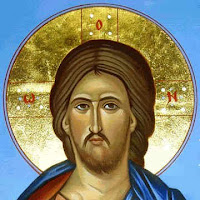Bishop Jefferts Schori’s Two Sermons: Curacao and Charleston
June 28, 2013
Jordan Hylden
Excerpt:
My title promised two sermons from the presiding bishop, and I’ve only mentioned one. The second was preached in January, this time in Charleston, South Carolina. The occasion was the secession of the conservative diocese from the Episcopal Church, and her audience was comprised of those who had decided to stay and form a continuing Episcopal diocese. The story of why the South Carolinians left is a long and sad one—the diocese was one of the Church’s founders, older than the United States itself, and was one of the few growth spots in a generally shrinking Church—but suffice it to say that they felt pushed out, and did not leave until their bishop, Mark Lawrence, was inhibited in his ministry by a disciplinary board for reasons the diocese held were unfair. The national Episcopal Church is now pursuing the diocese in court, as they’ve done in many similar cases (by now, they’ve spent over $22 million in legal costs), seeking to recover property and assets.
Now, I myself am against such conservative departures, and I deeply regret them. But there was nothing that required Bishop Jefferts Schori’s office to pursue lawsuits against these departing dioceses and parishes. The Church could have negotiated buyouts and settlements, and wished them well. They could have treated them like ecumenical partners, like the separated brothers and sisters that they are. They could have invited them as observers to the General Convention, and asked to send observers to theirs, all the while praying together and hoping for reconciliation and unity in the future. But that is not, regrettably, the path that has been taken.
The presiding bishop began her sermon with a story about a local man who not long ago made the mistake of flying his glider too close to a nuclear power plant. It was an honest mistake, but for his sins the local constabulary decided to put this septuagenarian in a tiny and crowded jail cell for over a day. Understandably, he was upset, and so were the feds — the police didn’t have any right to treat the guy like that, but as of yet there’s been no apology.
If you don’t see the analogy yet, she goes on to make it clear:
I tell you that story because it’s indicative of attitudes we’ve seen here and in many other places. Somebody decides he knows the law, and oversteps whatever authority he may have to dictate the fate of others who may in fact be obeying the law, and often a law for which this local tyrant is not the judge. It’s not too far from that kind of attitude to citizens’ militias deciding to patrol their towns or the Mexican border for unwelcome visitors. It’s not terribly far from the state of mind evidenced in school shootings, or in those who want to arm school children, or the terrorism that takes oil workers hostage.In essence, the presiding bishop saw fit to call Bishop Lawrence a “local tyrant” and compared him with backwoods militia, terrorists, and the murderers of children in schools.
Bishop Jefferts Schori’s Curaçao sermon was about the value of diversity, and about the kind of spiritual “blindness” that devalues “difference,” and can lead to “oppression” and “war.” But many conservatives in her church likely feel that her Charleston sermon sounded an awful lot like what she preached against in Curaçao, that it’s precisely the kind of oppositional rhetoric that’s accompanied all the lawsuits. For my own part, I hope that the conservatives aren’t the only ones who think so. the rest


1 Comments:
The Episcopal Cult has now embraced every doctrine and fruit of Hell.
Post a Comment
<< Home